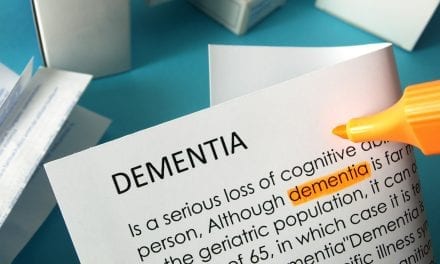Supporting clients outside the clinic builds empathy and helps to deepen your understanding of their full life needs.
By Shari Eberts
A Case Study: Are You Involved with the Hearing Loss Community?
Each year at the New York City Walk4Hearing, audiology groups come out to show support. Some are from established practices while others are student groups from local audiology programs. All are welcomed warmly and seem to enjoy the experience. And they are successful fundraisers, too!
Their presence is met with enthusiasm, but sometimes with surprise. Unfortunately, hearing care professionals (HCPs) don’t often attend events for people with hearing loss. This needs to change. When HCPs support people with hearing loss outside the clinic it helps to build a stronger and more united community.
Why is Involvement with the Hearing Loss Community Important?
“Nothing about us without us,” is an important rallying cry in the disability community. It means that no policy, product, or service should be developed without the full and direct participation of members of the group that will be impacted.
Whether it is an innovative technology product, the installation of a new listening system at a theater, or setting standards for captioning on social media, the best results require the input and involvement of the end users. It just makes sense.
That is why leading technology companies like Google include trusted testers from various disability groups in the development and enhancement of their products. It is also why HCPs should become more involved in the hearing loss community outside of the clinic.
When practitioners meet their clients outside the office, they develop empathy and real-world understanding they can take back into the clinic—creating better outcomes for clients and personal satisfaction for a job well done.

Shari Eberts and her husband at a Walk4Hearing event. Photo from Eberts
Five Ways to Support People with Hearing Loss in Their Community
With only so many hours in the day, it may not be possible to advocate in all the ways mentioned below. Pick the one or two that resonate most and give them your attention.
Meet With Us Outside the Clinic
The easiest way is to join a local support group such as a Hearing Loss Association of America chapter. Many chapters hold monthly meetings, both in-person and virtually. Volunteer to speak or simply attend to soak up the ambience. People with hearing loss are excited when HCPs and students attend, so introduce yourself. You may pick up a few new clients over time, but at a minimum, you will become more familiar with the needs of the community. Boosting your empathy and understanding will improve your ability to practice person-centered care.
Join Our Community Activities
Support people with hearing loss by participating in community outreach events. Join a local Walk4Hearing team or create one for your practice or school. Or attend an annual convention to present or attend educational workshops. You may be surprised by the incredible communication access on display. Share what you learn with your clients who may not be aware of all the accessibility options that exist for people with hearing loss.
Further reading: Your Clients Need More Than a Hearing Aid
Advocate for Communication Access
Much advocacy is needed to improve communication for people with hearing loss in a variety of settings. Mandate hearing loops in public spaces or promote captioned performances at a local theater or movie theater. People with hearing loss already advocate for better accessibility, but your voice as an expert in the field will carry significant weight.
Liaise with the Medical Community
Educate doctors in your area about the importance of healthy hearing and its links to other health issues. Suggest that doctors screen patients for hearing loss at wellness visits and refer patients to hearing care professionals for further testing when needed. Or partner with a local senior center to educate staff and residents about hearing loss, treatment options, and how to maintain the devices they do have, including the need to change batteries regularly. Staff members are often not as familiar with hearing aids as they should be.
Promote Hearing Loss Prevention
Work with local schools to include hearing loss prevention as part of the health curriculum. Teacher toolkits from It’s A Noisy Planet are free for the public to download and use for educational purposes. It’s a Noisy Planet is a program of the National Institutes of Health. Target elementary and middle schools so students learn healthy hearing habits early.
You can support the hearing loss community both inside and outside the clinic. Meet your clients in their communities to deepen empathy and understanding. The more you learn about their real-world experiences and listening needs, the better you can practice person-centered care.
Shari Eberts is a passionate hearing health advocate and internationally recognized author and speaker. She is the founder of Living with Hearing Loss, a popular blog for people with hearing loss. Eberts has an adult-onset genetic hearing loss and hopes that by sharing her story, she will help others to live more peacefully with their own hearing issues.
Featured Photo: Dreamstime
Original citation for this article: Eberts S. Support People with Hearing Loss Outside the Clinic. Hearing Review. 2024;31(2):12-13.





